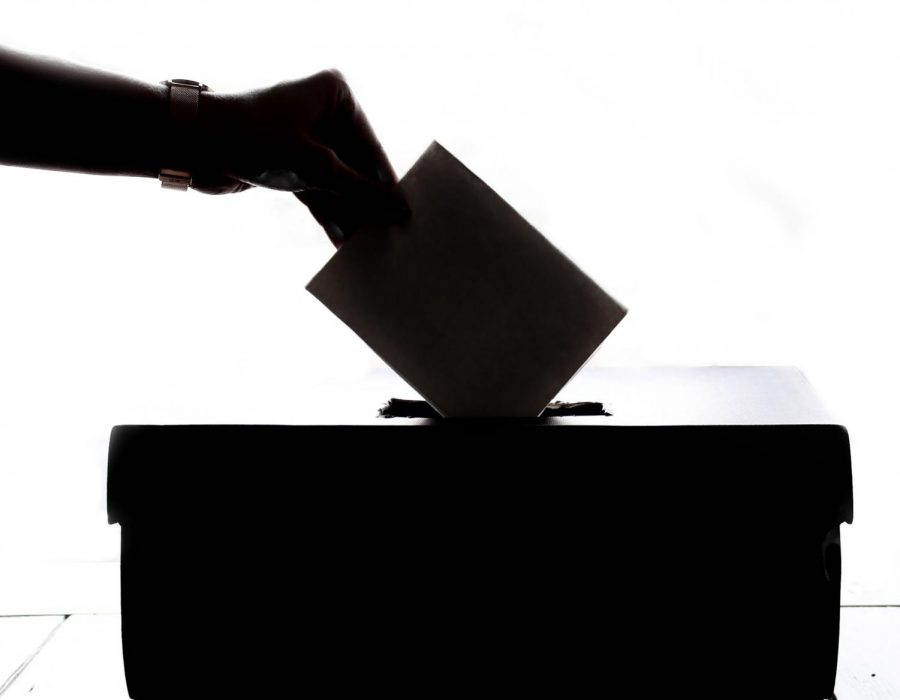Women’s rights is a logical deciding factor
Professor Emeritus Steve Corbin explains the importance of female voters in the 2020 election.
Sep 26, 2019
Editor’s Note: This Letter to the Editor was submitted by UNI Professor Emeritus of Marketing, Steve Corbin.
Passage of the 19th Amendment in 1920 gave women the right to vote, yet they remained relatively quiet at the polls for decades. But, in every presidential election since 1980, women have cast between four million and seven million more votes than men. The lyrics of Helen Reddy’s 1972 song, “I Am Woman,” come to mind: “hear me roar in numbers too big to ignore.”
A major gender divide between both political parties has surfaced since Trump’s 2016 presidential election making the Nov. 3, 2020 election most likely historic in that women may be the most powerful force for political change.
According to a July 3-14, 2019 nationwide survey of 1,912 likely 2020 voters conducted by PerryUndem, a non-partisan public opinion research firm, women across nearly every demographic segment think President Trump has made things worse for women. The way women are treated in society is a top voting issue for Democratic women voters; it comes in at 12th place for Republican women voters.
Females of the red and blue political persuasion are now polar opposites. Eighty-eight percent of Democratic women and only 54 percent of GOP women – a 34 percent difference – feel there is still work to be done for full equality for women in work, life and politics. To describe the state of women’s rights and equality in America, Democratic women use the words “angry, scared, nervous and sad” whereas Republican women use the phrase “satisfied and happy.” Ironically, across the gender aisle, four out of five Democrat and Republican men agree more work for women’s equality needs to be done. As many have said, women may be their own worst enemy.
Recent attempts for abortion bans in Alabama, Georgia, Iowa, Kentucky, Louisiana, Mississippi, Missouri and other states have caused 77 percent of Democrat women and only 27 percent of GOP women – a staggering 50 percent contrast – to “think more about the state of women’s rights.” The most common emotional response to the bans by Democrats is “angry” and “outraged.”
One of the most shocking survey results is anti-abortion pro-life voters are the segment of the electorate most likely to hold inegalitarian views. [Oxford, Collins and Merriam-Webster definitions: characterized by or promoting inequality between people; a person who holds that people are not equal; marked by disparity in social and economic standing, respectively.]
The recently attempted abortion bans have motived 78 percent of female Democrats and 67 percent of male Democrats versus 54 percent of Republican women and 45 percent of Republican men – a sizable polarity – to ensure they will vote in the 2020 election.
There are three priorities for the 2020 election both Democratic women and GOP women agree on: health care costs, government corruption and the next Supreme Court justices. Beyond that, Republican women only have one significant priority: illegal immigration. However, female Democrats have eight issues of importance: immigrant families being separated and detained at the border, the way Black and brown people are treated in our country, quality and affordable education, gun laws, climate change, abortion rights and access, the way women are treated in society and income inequality.
A whopping 84 percent of Democratic women versus 68 percent of Republican women feel the 2020 election is “more important than usual.” It would be wise for the four Republican presidential candidates and the 19 Democratic Party candidates to heed the words of Helen Reddy’s song: “I am wise, I can do anything, I am invincible, I am woman, I am strong, hear me roar in numbers too big to ignore.”








